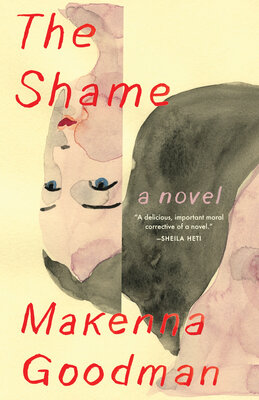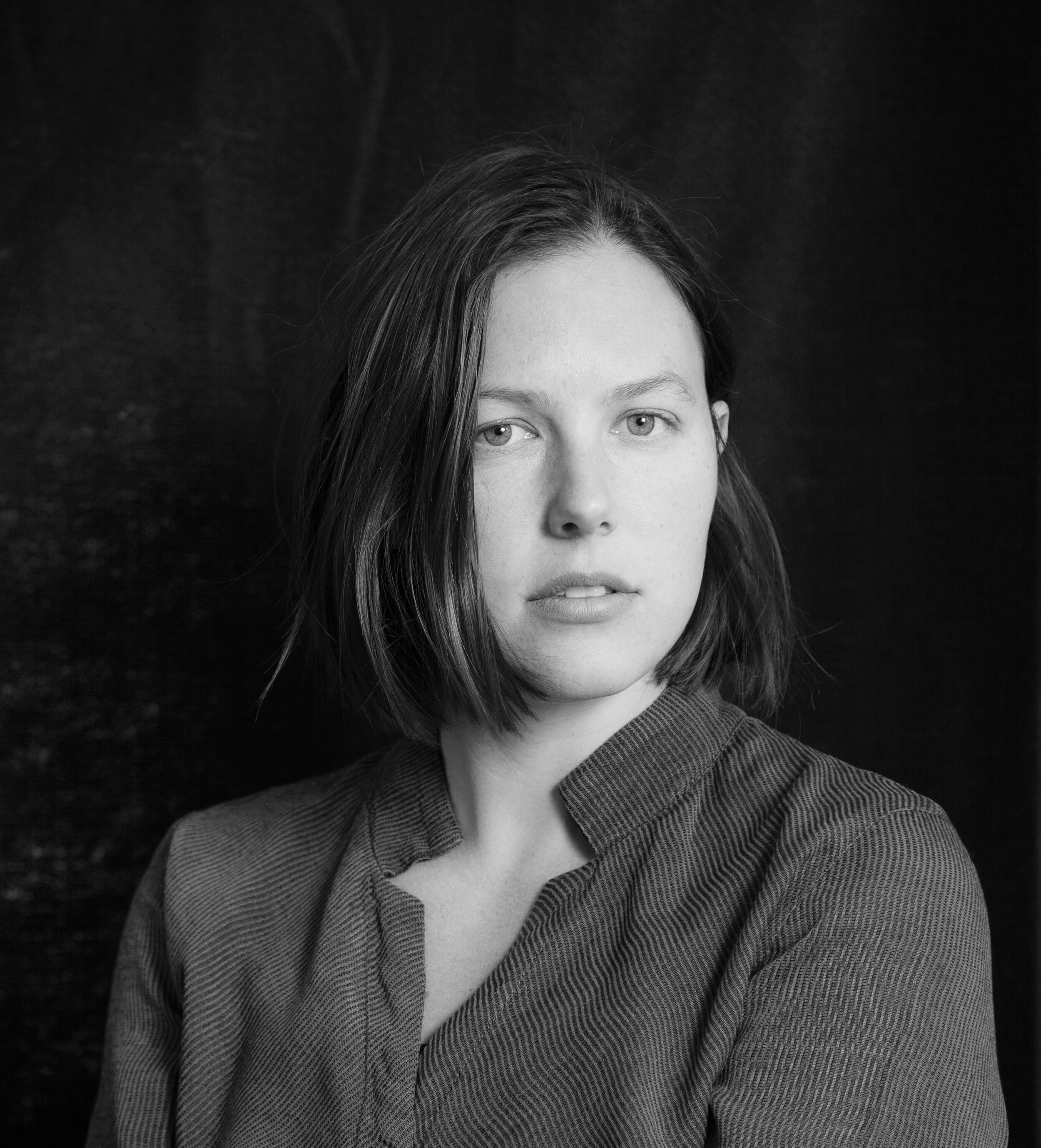Local author Makenna Goodman’s debut novel, The Shame, will be released on August 11, from Milkweed Editions. We’ve been obsessed with this novel since first reading it back in the spring. The Shame grabs you from the very first page with its bold opening, and keeps you turning pages as you follow the main character, Alma, as she navigates marriage, motherhood, social media, and ambition in rural Vermont. We can’t say enough good things about this novel. You really must read it!
We reached out to Makenna to ask her a few questions about the themes of her novel and her writing process. As an extra bonus, we invited two local poets, Taylor Mardis Katz and Camille Guthrie, as well as Still North Books & Bar owner, Allie Levy, to contribute questions for this interview. Thank you to everyone, and congratulations to Makenna!

Literary North: What ideas were you wrestling with at the very beginning of your time working on what is now The Shame? What kind of novel were you interested in writing?
Makenna Goodman: I began writing this novel about five years ago, after reading a short book of psychoanalytic theory that likened a woman’s coming into awareness with the Eros and Psyche myth. This person’s theory was that each character in the myth represented a part of the woman herself, the so-called archetypal woman (I can’t even remember if I agree with his take on femininity, honestly, but it doesn’t really matter). I grew up reading mythology and found this an exciting way into an idea. What would happen if I looked at a burning question through the many lenses of projection, of the self, manifested in many parts? My burning question was, “What is the meaning of one’s work in the world?” and “How does that relate to the systems one can’t control?” I wasn’t interested in writing a certain kind of novel, just the answer to my question, which began as a conversation with myself and turned into the novel it is now.
LN: Tell us about how you approached writing the beginning of the novel. It's such a surprising and powerful start to the book. Where did it fall in your writing process?
MG: I can’t remember when I wrote it. But it came from a conversation I had over ice cream with my eight-year-old niece, who asked me a very precocious question, which I answered honestly.
LN: Why did you title this book The Shame? Whose shame are you referring to? In what ways is shame part of the novel? In what ways is it part of being a woman?
MG: I think there are so many answers to this question and I’m not sure I have a good one. Right now, I’m interested in how we often take literature written by women at face value. As in, every woman stands for “women,” and every experience or decision made by the narrator should be taken literally. I wish more female-authored literature was categorized as philosophical inquiry about social systems and sociopolitical critique. Why is motherhood rarely seen as a metaphor for power? It’s bizarre to me. This is a kind of societal shame—the shame of compartmentalizing things as domestic that aren’t deemed legitimate by those who hold narrative power. But everyone has their own version of shame at any point in time, on varying levels. It is a state of being human. One of many states.
LN: Could you please tell us about the gorgeous cover design?
MG: Isn’t it incredible? I was connected to the brilliant Leanne Shapton via a mutual friend, Sheila Heti, and working with her was a wonderful experience. I have long been a fan of her writing and painting, not to mention her ability to traverse various media at once in a way that feels fun and challenging and unique. I just signed a bunch of copies of the book and was putting them into this big box and it was like rifling through a chest of jewels. I will never get sick of how beautiful the book is! I love it as an object, regardless of its insides. It’s a painting of Leanne’s from her German Doll series, that she cut up and rearranged. I think it illustrates the concept of psyche very simply and perfectly.
LN: Are there any debut novels (out now or forthcoming) that you'd like to recommend?
MG: Right now I am reading The Discomfort of Evening by Marieke Lucas Rijneveld, which comes out in August. It is a brilliant book. The writer has published poetry in the Netherlands, but this is their first novel, translated from the Dutch by Michele Hutchison. I’m excited to read Luster by Raven Leilani, which I’ve heard great things about.
Taylor Mardis Katz: Once you finished writing The Shame, did you feel like the story was fully out of your system, or did it/does it still linger with you? Do you continue thinking about your characters, or have you moved on to new characters/new projects?
MG: I think of the characters in the novel as more like projections of mind states, and yes, at some points they come back to me like a memory or a dream. And even if I wanted to, I can’t rid myself of a concept, but I do change my attachment to it. I’m moving on to new concepts and new projects that excite me, though, although probably they’re just new versions of the same concepts, with a new layer.
Camille Guthrie: In the book, the narrator talks about the “witches" she was reading and loving. Who are some of your literary witches that influenced you when you were writing The Shame?
MG: I used the word “witch” in the sense that they were women stirring pots, cauldrons of discourse. For the narrator this meant women who were writing what may have been unpopular opinions or in transgressive styles at times when it was almost a miracle they were getting published, or perhaps they were shunned, or, if they were acknowledged, may not have received the attention they deserved until much later, when culture caught up with them. I didn’t name them in the book for a reason because, again, it was the concept of the female writer I was more interested in—and how they represented for the narrator both inspiration as well as the kind of writer she would like to have been, or the one she wants to become. I can’t choose a few for this answer, it’s not fair, they are all important to me! I’d have to write a profile of each writer to really be able to explain what they mean to me. But in the interest of actually answering your question, a strong influence was the book of psychoanalytic theory She by Robert A. Johnson, which I referred to earlier. But not because I liked it—I’m not certain I did. But it put a finger in a kind of wound.
CG: You shared an earlier draft of the novel with me, which I love, and I'm very eager to read the final version when it arrives. How many drafts do you think you wrote of the book? How did you encourage yourself to keep going?
MG: Oh god, many drafts, although it would probably sound cool to be like, I wrote it in one night, in a drunken stupor. But with every draft, the piece got more and more true to itself, and in each draft the edits were slighter and slighter, and the cuts more and more important. I had to strip away all the excess. I trimmed adjectives ruthlessly—I believe in saying the thing you want as simply as you can, for who has time to parse through all the adjectives? I stayed encouraged by continuing to read and talking to friends (like you!) who had been through it too, who love books and reading. I just kept reading and enjoying it so much. And I started writing something new, too, which kept me excited while editing. And also, I tried to keep some perspective. There are more important things than suffering over one’s art!
Allie Levy: I'm amazed at how this novel is so slim (some may even call it a novella), and yet so jam-packed with anecdotes, observations, insights, and uncanny details. Was there a point in the writing process that you realized this would be a “slim novel”? Was there pressure to shorten it or pad it so it would more easily fit into publishing’s definitions of the two forms?
Makenna Goodman: Katherine Anne Porter wrote a wonderfully insightful introduction to her collected stories in 1965 about the idea of this kind of categorization. She said:
I beg of the reader one gentle favor for which he may be sure of my perpetual gratitude: please do not call my short novels Novelettes, or even worse, Novellas. Novelette is a classical usage for a trivial, dime-novel sort of thing; Novella is a slack, boneless, affected word that we do not need to describe anything. Please call my works by their right names: we have four that cover every division: short stories, long stories, short novels, novels.
I think my story is the length it should be, if it has done its job. The categorizing of novels, I think, is partly a contemporary one, born out of a culture where bigger is better and small is less serious. But what is so great about a long novel that goes on and on, if it hasn’t earned the right to keep your attention? For me the categories should be: did it move you, did it change you, was it enjoyable to read, did it work? Annie Ernaux, the French writer who is generally referred to as a memoirist but considers her work novelistic, has some short novels that are less than 70 pages. And they are the perfect length. I have on my bedside the behemoth Anniversaries by Uwe Johnson (which I look forward to reading this winter), which clocks in at nearly 2,000 pages and comes as one item in a two-book, boxed set. And then there’s Nella Larsen’s Passing, an unforgettable book, which is 120 pages and yet feels twenty times that in the weight of its meaning and the depth of its layers.
We are so excited to be co-hosting the virtual launch party for The Shame, with Still North Books & Bar. Makenna will be in conversation with the amazing Lauren Groff on Tuesday, August 11, at 7:30 pm via Crowdcast. To attend, please visit our launch celebration page to register.
During the months of August and September, bookstores all over the country will be hosting Makenna for virtual events. She will be in conversation with the authors Julie Buntin, Miciah Bay Gault, Sarah Elaine Smith, Kathryn Scanlan, Sheila Heti, Leanne Shapton, and Clare Beams. To see the details of her virtual tour schedule, please visit Milkweed Editions’ event page.

Photo by Suzanne Opton
Makenna Goodman lives and works in Vermont. The Shame: A Novel, forthcoming August 2020, is her first novel.